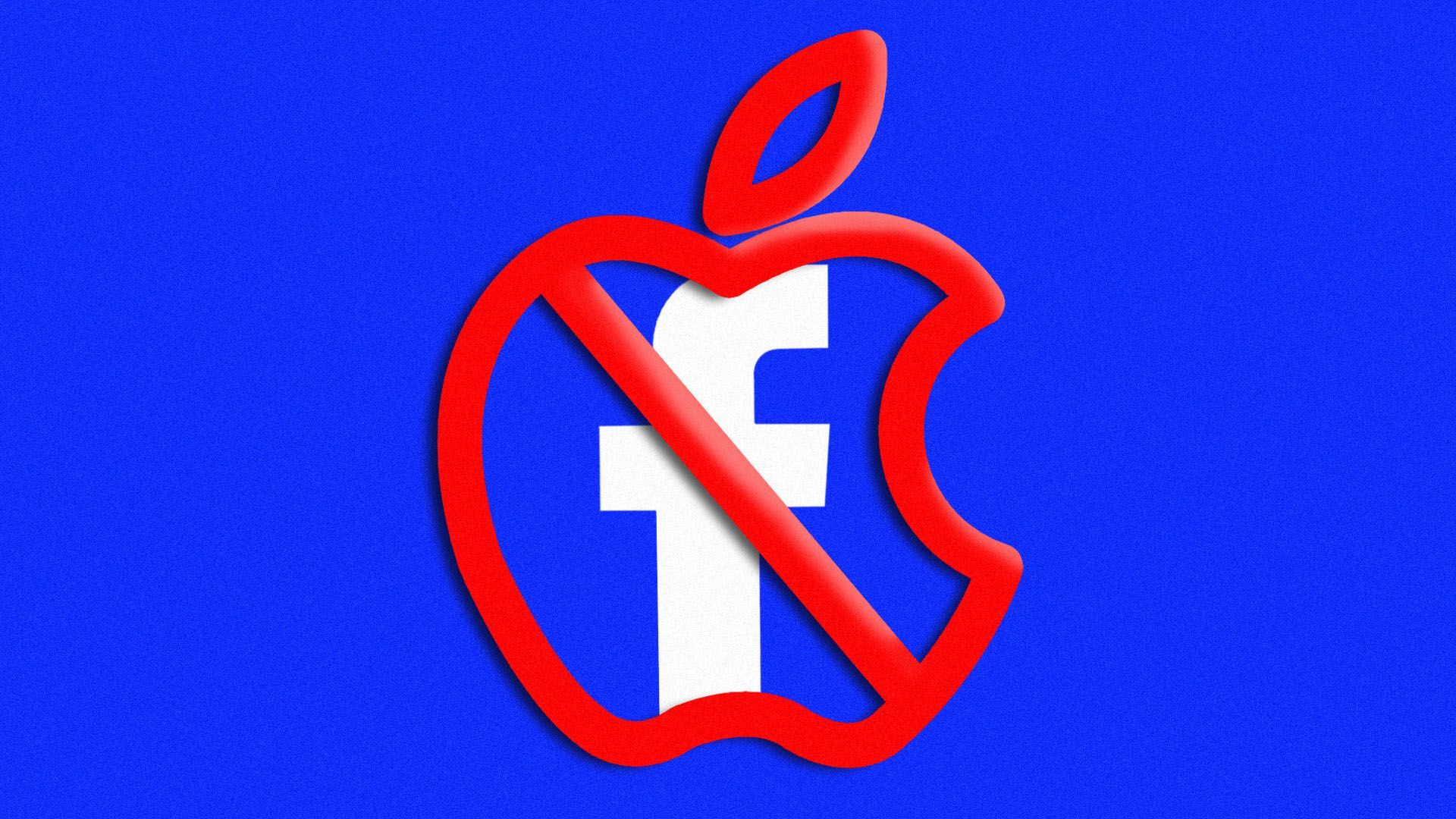Why Facebook's cloud gaming won't be coming to your iPhone
Add Axios as your preferred source to
see more of our stories on Google.

Illustration: Sarah Grillo/Axios
Facebook on Monday launched its free cloud gaming platform on desktop and Google's Android mobile operating system but said it it couldn't offer the service on Apple's iOS because of Apple's "arbitrary" policies on applications that act like app stores.
The big picture: It's the latest example of the complex interrelationships among tech's biggest companies, which cooperate with one another in some areas while competing and fighting in others.
Details: "We’ve had some history with Apple restricting instant games on the standalone Facebook Gaming app on iOS," a PR rep for the company noted Monday morning."We’re unfortunately not launching cloud-streamed games on iOS, and we’re again being transparent about why."
- In a blog post, the company noted that "Even with Apple’s new cloud games policy, we don’t know if launching on the App Store is a viable path."
- "While our iOS path is uncertain, one thing is clear. Apple treats games differently and continues to exert control over a very precious resource."
Context: Facebook and Apple have clashed this year in several areas, with Apple's app store and privacy policies at the center of the dispute.
- Those battles follow a series of high-profile spats, like Apple shutting down a Facebook "research" app in 2019 that tracked what users did on their phones, and Apple temporarily cutting off Facebook's developers from access to test versions of their iOS software.
- Facebook and Google — which fought for years in the social media arena as Google tried, and failed, to set up a rival to Facebook's dominant network — find themselves on the same side in that conflict.
Google and Apple, for their part, continue to compete in the mobile operating system market — but Google also pays Apple billions as part of long-term deals placing Google search as a default on Apple phones.
- Nearly half of Google's search traffic comes from Apple devices, according to the Justice Department's recent lawsuit against Google. Apple receives roughly $8 billion to $12 billion in annual payments from Google in exchange for making Google the default search engine in its products, per reports cited in the lawsuit.
Why it matters: These complex frenemy relationships offer prosecutors and regulators plenty of evidence to explore as they zero in on each of these companies as a monopoly and potential violator of antitrust laws.
Between the lines: Google's search business depends on the health of the open web, whereas Apple's vision of mobile operating-system stewardship is based on a "walled garden" approach, with strict rules to keep its user experience clean and secure.
- As Facebook aims to expand beyond its social networking platform in markets like gaming and hardware, it finds itself more frequently in conflict with Apple than Google — even though Google is its chief rival in the massive online advertising business.

